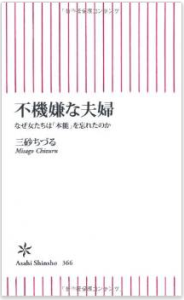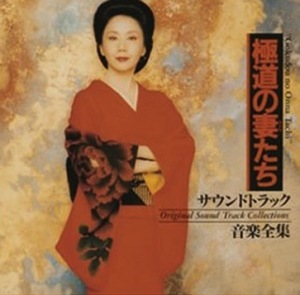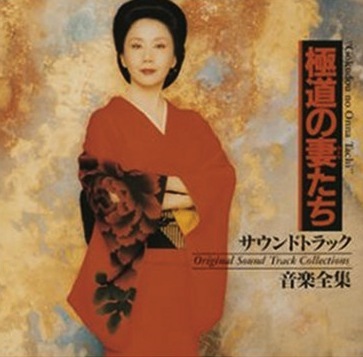By Kaori Shoji
 As long as time immemorial, being a woman in Japan meant the rawest of deals. The long, long tradition of top-down patriarchy held that women were good for of either two things: sexual slavery or household drudgery. Once a woman got past her reproductive years, she was expected to control the younger women in the house, which mostly meant bullying the daughter-in-law and sowing a lot of ill-will in the family. By the time she hit her mid 40s, this woman had white hair and grandchildren. At 60, she was dead or getting there; her tiny body stooped so badly it appeared she was folded in two.
As long as time immemorial, being a woman in Japan meant the rawest of deals. The long, long tradition of top-down patriarchy held that women were good for of either two things: sexual slavery or household drudgery. Once a woman got past her reproductive years, she was expected to control the younger women in the house, which mostly meant bullying the daughter-in-law and sowing a lot of ill-will in the family. By the time she hit her mid 40s, this woman had white hair and grandchildren. At 60, she was dead or getting there; her tiny body stooped so badly it appeared she was folded in two.
Zowie, it was this bad – or so Japanese women born after WWII were taught, offset by a brand new, American imported democracy. Women were told there was nothing remotely fine about being born in Japan. To the rest of the world, she represented the demure and docile geisha-equivalent while inside her own country, she was slated for a lifetime of toil and family bondage. The only way out of this awful spiral was to get an education, an office job, and marry well – preferably to an urbanized, liberal man whose mama lived far, far away.
But even that was no guarantee. My own mother went to an arts university and never had to deal with her husband’s mother and lived the modernized convenient life in Tokyo. She said over and over that marriage was a tombstone that marked the spiritual death of a woman and every child she had drove the nails further into her coffin. “Never get married,” she liked to say. “It’s the stupidest thing in the world.” My mother wasn’t a rabid feminist; she was simply echoing the conviction of many women of her generation who felt they had been cheated. Women born in the post-war years often feel like they were never given a chance – happiness always seemed to elude their grasp as husbands disappeared into their jobs and children departed for futures that rarely included a place for their mothers.
In the last 10 years, anthropologist and epidemiologist Chizuru Misago’s (三砂ちづる) works have turned the tables on the timeworn assumption that Japanese women have always been repressed and unhappy and will continue to be so unless she leaves the archipelago at her earliest opportunity. A highly accomplished academic whose resume includes a Ph.D from London University and a decade of fieldwork in Brazil, Misago holds that no good can come from over-educating the Japanese woman or copying western notions of feminism. In her 2004 breakthrough book “Onibabaka Suru Onnatachi” (Women Who Turn into She-Ogres), she discusses the virtues of the socio-political system in pre-modern Japan that actually protected women and their bodies, the benefits of squat toilets, and sex from an early age. She’s a strong advocate of marriage (whether it’s a love-match or family arranged) and sleeping with one’s spouse as often as possible. In short, Misago’s teachings flew right in the face of everything the post-war education system strove to encase in concrete and submerge in the ocean like a corpse killed by the yakuza.
Misago laid it out in black and white: the prime reason Japanese women turn bitchy or into she-ogres is because they’re not touched and cuddled enough. Never before had a woman academic come right out and said sex – not love – was crucial to women’s mental and physical well-being. Women sat up and paid attention, among them novelist Banana Yoshimoto who later wrote a book about the importance of skinship, childbirth, and healthy sexual relationships.

Unfortunately, Misago’s words weren’t enough to turn back the winds of our particular time, one in which an unprecedented number of women join the workforce, remain virgins past 25, and never marry. The divorce rate is up. Incidents of domestic violence and child neglect are up. The bottom line seems to be that sex and relationships are not only hard to get in Japan, they‘re on the endangered species list along with the whooping crane.
Dr. Misago’s 2012 work “Fukigenna Fufu” (The Bad-Mood Marriage) gets right to the heart of the matter. She lays bare the sorry state of Japanese coupledom in which man and wife sleep apart and hold conversations that sound like joyless office memos. Worst of all, they seem to have no idea how to love their children, which is at least partly responsible for an alarming soar in juvenile crime.
“One of the worst predicaments for a child,” she wrote, “is that their parents are not happy together as man and woman. Think how lonely it must be for the child. Think of the enormous pressure a child feels when confronted with the discontentment and unhappiness of his/her mother.”
If we are to fall in with Dr. Misago’s teachings, we owe it to our kids to kiss and cuddle with our spouses as often as possible. Never mind about falling salaries and the rising cost of living. Never mind about work and getting ahead. Children are young and impressionable for only so long. By the time they leave for college, the damage of a sour marriage will have left permanent marks on their personalities and outlooks.
Interestingly, Misago wrote that Japanese women in their 70s are apt to be the most selfish but unhappiest demographic. They were the first female generation to get college educations en masse but were also socially restricted from seeking jobs that matched their degrees. They often had no choice but to stay home, raise children, and wait for their husbands to come home. “These women often sought personal redemption by pushing their sons and daughters to be better at school, to be competitive, and to get ahead in life,” she wrote. “But actually, that’s not a very nice message. If you want to raise children to be loving human beings, you must first love them unconditionally and for who they are.”
Misago’s words have been a revelation for many Japanese women, raised by mothers who scolded and cajoled and coerced them to be better at everything, from having the right playmates to finding the most acceptable husbands with the highest incomes. Ugh. Surely we must scrap this legacy. It’s not too late to work on a good-mood marriage.

I take it there’s no English translation?
yep.
Enjoy your writing.
Lived in Nagoya 10 years, 2003-2013.
Publishing a memoir this Autumn.
Can I connect with you?
Thanks.
Trevor David
Trevor, you can. Please try us at japansubcultureresearchcenter at gmail.com